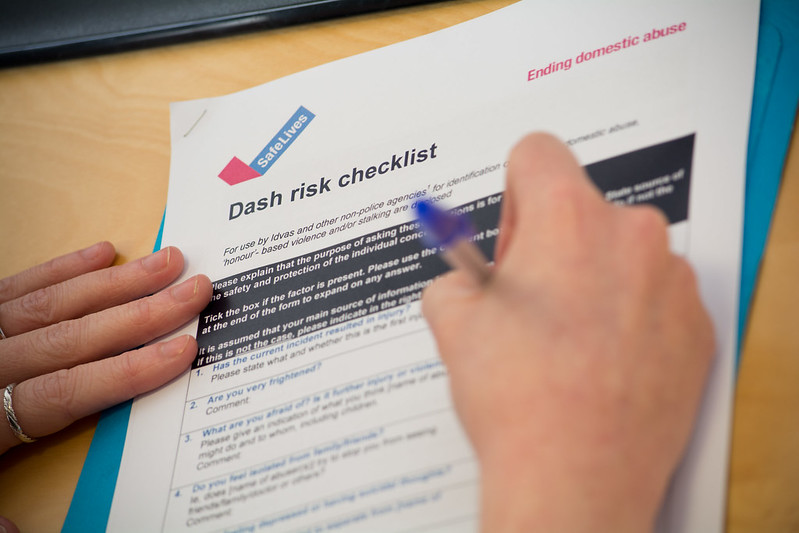
SafeLives response to College of Policing report on domestic abuse risk assessment
SafeLives welcome the College of Policing’s continued commitment to improve the response to domestic abuse.
Each year over two million people in the UK experience domestic abuse. We must do everything we can to improve the response for all victims, survivors and families. This includes ensuring a consistent, empathetic response from the police, with a proper understanding of the risk posed by the perpetrator, and how that risk can change over time.
When someone is experiencing domestic abuse it’s vital to have a common understanding and way of assessing risk, in order to provide consistency and ensure victims get an appropriate response wherever they are, whoever they talk to. The value and importance of the DASH – the current tool – is that it creates a common language between different services who have a role and need to work together.
Unfortunately we haven’t seen the version of the tool which was piloted by the College – we hope we’ll have the opportunity to engage more closely with the next phase of pilot and evaluation. It is clear from this evaluation report though that any tool, whether the DASH or a newly developed one, can only be adopted hand in hand with intensive training to change culture, competence and motivation – with professional judgment also remaining vitally important. Ten police forces of the 43 across England and Wales have now adopted the DA Matters culture change programme; we hope that figure continues to rise.
Developments to risk assessment will need to be considered in the context of a whole system response, as no one agency deals with domestic abuse in isolation. As the College of Policing recognise, any newly developed risk assessment tool would need to fit with the work of other agencies, and multi-agency forums like MARAC. We look forward to hearing further information about the leadership and content of the next phase of work, so we can understand how the next part of the pilot will test this multi-agency context.
Suzanne Jacob, OBE, SafeLives Chief ExecutivesAt the heart of any response to domestic abuse must be the safety of every victim, child and family experiencing harm. No one should have to reach crisis point before we pay attention. The police response to domestic abuse must be consistent, timely and empathetic – with training, awareness and understanding at the heart.
This is true of the police but also a range of other agencies, making it vital that changes to practice are thought through with multi-agency working in mind. We look forward to working with the College of Policing to prioritise victim safety and wellbeing, while holding perpetrators to account for their behaviour
You may also be interested in


DA Matters: Police responders training initial report

